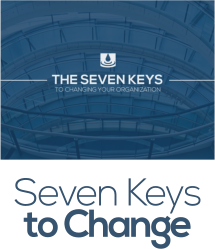


Why Facilitate a Meeting or Retreat?
As most people in organizations are all too aware, the vast majority of meetings are routine.
But some meetings are sensitive and important, addressing key issues within your organization. For these meetings, everyone attending needs to be fully engaged and able to contribute, rather than simultaneously trying to handle the leadership of the meeting.
And formal external facilitation can help ease the stress and tension that often come with such important, sensitive topics.
When Do You Need to Bring in a Facilitator?
You might consider external facilitation when your meeting or retreat is involved with…
- Making key policy decisions.
- Reflecting on shared experiences to derive learnings and implications.
- Planning around specific issues.
- Clarifying roles, procedures, or norms.
- Managing sensitive interpersonal dynamics among the participants.
What Makes a Meeting or Retreat Effective?
There are four keys to effective meetings or retreats…
- The agenda is carefully planned to enable objectives to be met and the group to be satisfied with the process.
- The leader is free to participate fully, actively contributing to the substance of the conversation.
- The agenda is accomplished in a way that encourages full participation, resulting in clear, satisfying outcomes.
- The meeting includes appropriate planning for follow-through.
Through team building, a team learns about and applies effective team behaviors. This includes those aimed at simply getting the task done, as well as those that build trusting relationships among the team’s members.
An effective team-building facilitator can greatly add to the team’s effectiveness and accelerate the pace of the team-building process.
What Makes a Facilitator Effective?
An effective facilitator is skilled in…
- Building a realistic and compelling agenda.
- Creating a high level of focus in the conversations.
- Maintaining objectivity while allowing all voices to be heard.
- Summarizing and synthesizing what’s being said to help create clarity and focus.
- Assisting groups in transitioning to the follow-through.
Meeting & Retreat Clients Include…
- Veterinary Medical Association
- Ohio State University
- Mount Sinai Medical Center
- NYU Medical Center
- US Departments of Agriculture, Energy, Commerce
- National Institutes of Health
- Columbus Zoo
- National Performing Arts Convention
- Autism Speaks
- University of Minnesota
- United Nations Food and Agriculture Organization
- Kaiser Engineering
- Centers for Disease Control
- The WIlds
I asked Daniel to be there, knowing I could rely on him – knowing he can read the room, he can read the need of the client, he can go in there and assess. He never compromises the integrity of the project or the initiative. He can be strategic, and he can also be extremely tactical. He can think at the highest level and go right down to the nitty-gritty of what has to be done to get things operationally moved along. He comes at the work where the work dictates what needs to be done – not his own ego.
The group that Daniel came to facilitate tends to be inherently skeptical about outside inputs. In fact, one of the group is a very smart person who’s extremely easily bored, and I really wasn’t sure how long he was going to stay with us. He stayed until almost the end, and as he left, he said to me, “I hadn’t planned to stay beyond the first day, but I got hooked, and I’m only going because I have something I really have to do!



